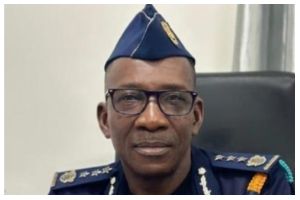Cape Coast (C/R), Nov. 22, GNA- Government has allocated additional 20 Billion cedis to each of three of the state universities for the expansion of lecture halls and hostels next year.
This is in addition to funds provided from the budget and the Ghana Education Trust Fund (GETFUND) allocated to the University of Ghana (UG), Legon, University of Cape Coast (UCC) and the Kwame Nkrumah University of Science and Technology (KNUST) in Kumasi.
President John Agyekum Kufuor who announced this on Saturday said 10 million dollars out of a Spanish grant of 40 million dollars had been allocated to the University of Development Studies (UDS) for similar expansion programme. He was speaking at a ceremony where he was honoured by the University of Cape Coast (UCC) with an honorary doctorate degree in law at a special congregation held at the UCC, Cape Coast.
President Kufuor, is the first sitting President in the country, to be given such an award by the University, which has conferred similar honours on 24 eminent personalities, including non-Ghanaians of varying backgrounds and fields of endeavour.
A citation accompanying the award read by the Registrar of the UCC, Mr Kofi Ohene said, "President Kufuor, was being honoured in the light of his distinguished service to Ghana, the international community and to humanity.
"The UCC was proud to honour him as an eminent statesman, lawyer and peace maker", the Registrar said. More
President Kufuor said after more than 30 years of neglect and hardly any investment on the campuses of the state universities, construction and building works were now taking place to keep them abreast with the growing population and the resultant demand for accommodation.
He said the priorities for rejuvenating and expanding the universities now, were well laid out and the works were aimed at getting modern and well-equipped lecture halls, well-stocked libraries, laboratories and workshops.
Others, President Kufuor said, were the integration of ICT in all courses, residential accommodation for students and lecturers and modern offices for efficient management of the institutions.
"Government is determined to make the campuses more conducive for the production of 21st Century graduates and given the rate of development going on, we expect marked improvement in the situation within the next two years", he added.
President Kufuor was optimistic that the works currently going on to modernise the teaching facilities and ease the overcrowding would go a long way to improve upon the working conditions and make life of the lecturer a little better.
He said it was not only the physical state of the universities that should engage attention of the stakeholders but most importantly their image.
President Kufuor, therefore, called on the stakeholders, to be always mindful that over the years universities in Ghana had carved a sound reputation in the academic world and nothing should be done to jeopardize this asset and continue to produce quality graduates for the academic world.
"A degree from a Ghanaian university should continue to command respect. In today's globalised world, we dare not fall behind with our standards", he said.
President Kufuor said another problem engaging government's attention was how to ensure continued high quality from secondary to tertiary level.
He said like the universities, the state of the school buildings and the teaching environment in both primary and secondary levels had deteriorated badly.
President Kufuor said over the past two years, there had been such vigorous activity in that sector as well as with the building and rehabilitation of schools.
He said work on the upgrading of the first 31 selected Senior Secondary Schools (SSS) had begun, and next year, work on additional 25 SSS with funding from the African Development Bank (ADB) would begin to make more students from the SSS to be admitted into the universities.
On the award, President Kufuor said UCC had come a long way since its establishment in 1962 and with diligence it had become an institution that had credible ratings in academic circles around the world.
" I am certainly proud to be counted as an alumnus of this university and I pledge to be worthy of the honour bestowed on me. The university and its students too should conduct their affairs in such a manner as to enhance my pride in them ", he said.
Reverend Professor Emmanuel Adow Obeng, Vice Chancellor of the UCC, said the role of a national leader was key to the achievement of a country's developmental goals and Ghana's bane had been poor leadership.
He said in the past some of the leaders in Ghana had brutalise the people and cowed them into submission to entrench themselves in power.
Rev. Prof. Obeng said others sought to improve their own personal circumstances rather than to help alleviate the suffering of the ordinary citizen.
He said some the leaders had been arrogant and felt they were the only people with a right to express an opinion and everybody else reduced to the culture of silence.
Rev. Prof. Obeng said the leadership under President Kufuor was one that did not evade criticism, ruled by example, was modest in its lifestyle, firm in its moral commitment, dedicated to the good of the nation and was a symbol of courage, dignity and the love for freedom.
The Vice Chancellor said the award was not just to recognise the gains that had been made over the past three years but more importantly, to encourage and commit President Kufuor to continue in the direction that he had chosen to lead Ghana.
He said the President belongs to the new breed of leaders who had initiated a paradigm shift in the art of governance, leaders who through selfless devotion had sought to promote greater democracy steeped in the rule of law, the advancement of peace and reconciliation and above all economic growth and development.
"He is also on record to be the first Head of State to submit himself for review under the Peer Review Mechanism within the framework of the New Partnership for Africa's Development (NEPAD)", he added.
General News of Saturday, 22 November 2003
Source: GNA
Govt allocates additional funds for state universities
Entertainment











